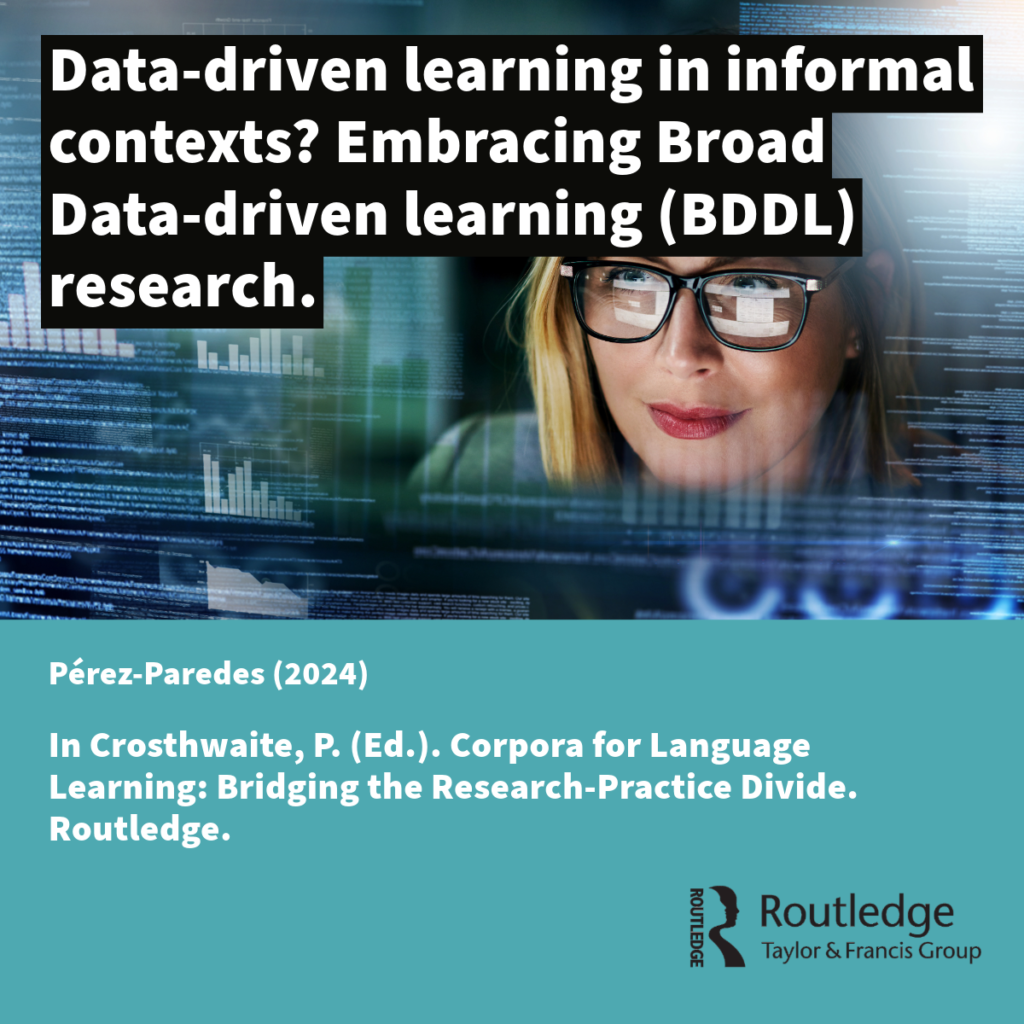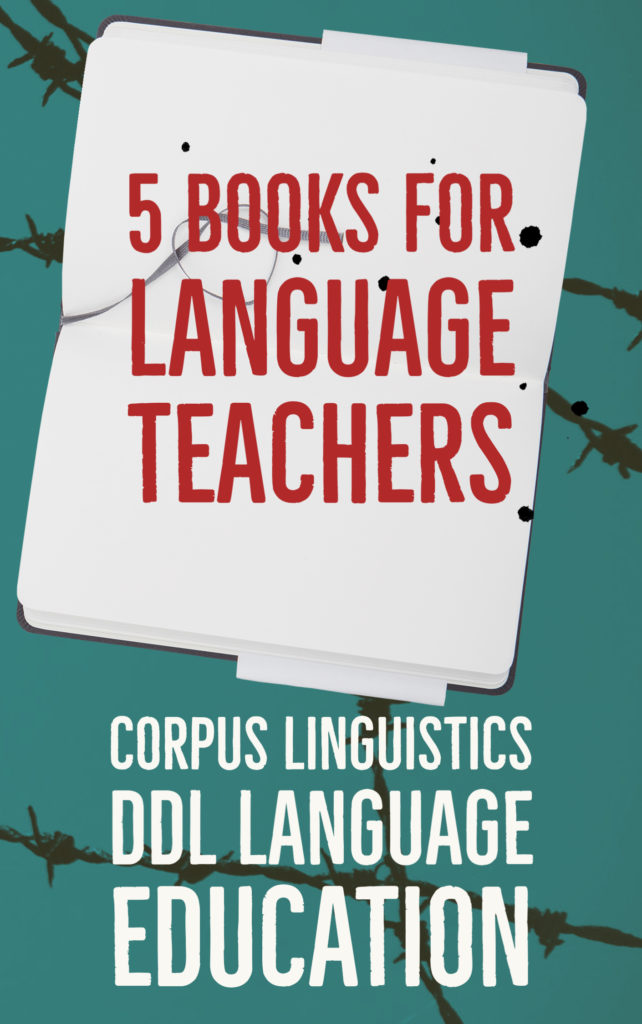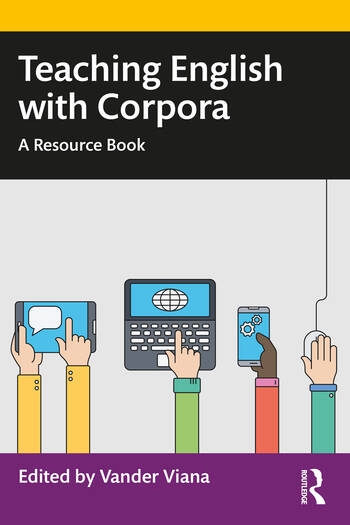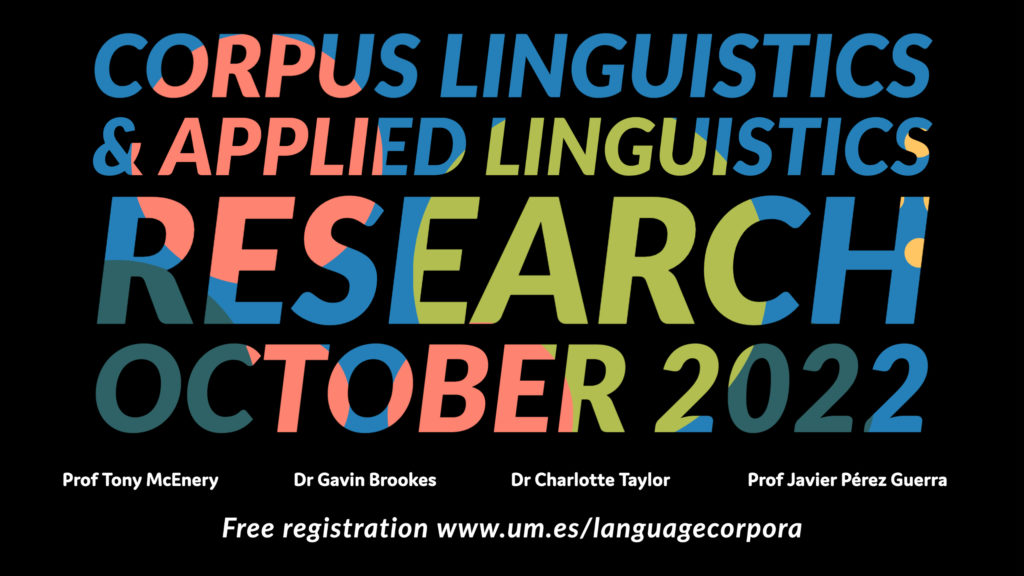
Pérez-Paredes, P. (2024) Data-driven learning in informal contexts? Embracing Broad Data-driven learning (BDDL) research. In Crosthwaite, P. (Ed.). Corpora for Language Learning: Bridging the Research-Practice Divide. Routledge.
In this chapter, I argue that it is necessary to pursue an analysis of DDL practices in the broader language learning context (Pérez-Paredes & Mark, 2022), particularly in informal contexts outside the university classroom.
We need to push the boundaries of DDL praxis and research outside the classroom if we are to gain a more comprehensive view of the contributions of DDL to language learning in the first half of the 21st century. It is essential to expand the ecological research model that has dominated DDL research so far, and which has thoroughly examined higher education (HE) contexts.
While instructed, formal language learning continues to be central to language learners’ experiences, new sites of learning and technologies emerge sometimes unexpectedly (e.g. the impact of ChatGPT at the end of 2022 was surprising, and it is probably too soon to evaluate its impact on language education).
I use the term “prototypical DDL” (Boulton, 2015) to refer to DDL that is designed by an expert in corpus linguistics and which takes place in the context of instructed second language acquisition (SLA) as part of a module or an official programme, typically in a higher education institution (HEI).
The term “broad DDL” (BDDL) refers to pedagogical natural language processing resources (P-NLPRs) for language learning (see Pérez- Paredes et al., 2018). BDDL makes use of a wide range of existing resources such as online dictionaries, text analysis and text processing tools, vocabulary-oriented websites and apps, translation services, and artificial intelligence (AI) tools for language learning across a variety of contexts, including self-directed uses.
It also involves the use of informal language learning against the backdrop of digital learning, characterized by a new ecology of reading and writing, multitasking and the emergence of a new literate social formation (Pérez-Paredes & Zhang, 2022) where communication processes are transitioning towards “dialogic interactions [less] subject to the power of institutions to set standards of knowledge, procedure, and truth based on their control of written texts” (Gee & Hayes, 2011, p. 125).
In BDDL, corpora are one of the many resources available to language learners. While some research has examined the use of Google as a web corpus and a concordancer (Sun, 2007; Sha, 2010; Pérez-Paredes et al., 2012; Boulton, 2015), this has mostly happened in instructed SLA contexts. The impact of other P-NLPRs in informal learning remains largely unexplored (see Crosthwaite & Boulton, 2023 for a discussion of some of these resources).
User-generated activity using personal devices such as phones or tablets treasure the potential to inform designed activity and, most significantly, what we know about learners’ interactions with content online (Kukulska-Hulme et al., 2007). P-NLPRs have the potential to foster autonomy, personalization, induction and authenticity and may offer an alternative to prototypical DDL corpora when engaging with BDLL (Pérez-Paredes et al., 2018, 2019).
There are three areas, at least, that will benefit from an examination of BDDL practices in informal learning: The exploration of new sites of language learning engagement; New opportunities to increase our understanding of the cognitive processes involved in statistical language learning; and the study and analysis of the role of new corpora in informal settings.
Thanks to Carolina Tavares de Carvalho, Daniela Terenzi & Alejandro Curado Fuentes for providing their insights




